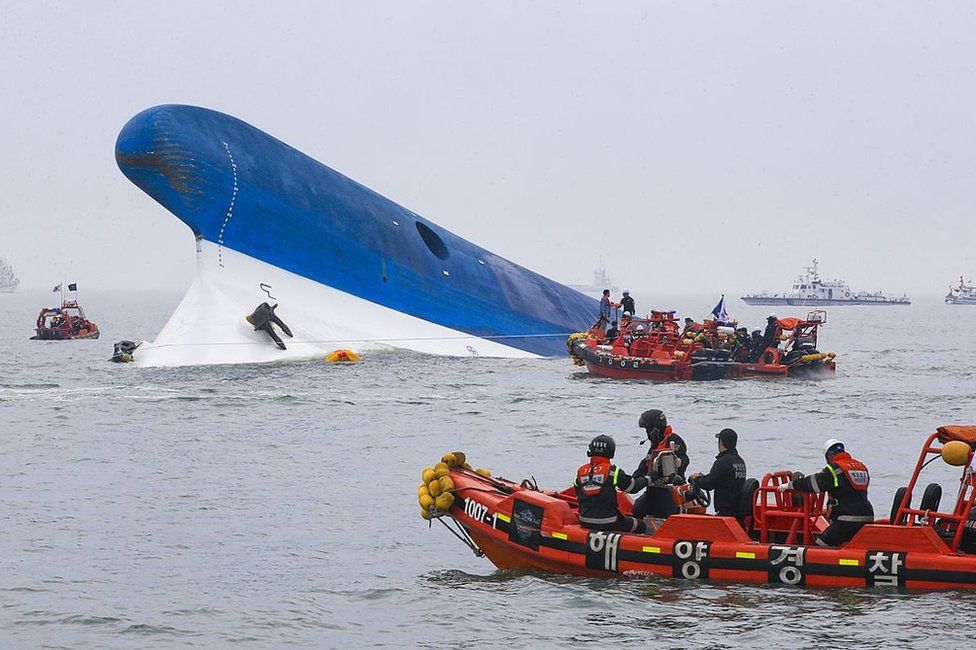Film points finger at South Korean government for Sewol disaster
- Published

Three years ago the Sewol ferry disaster sparked a massive public outcry in South Korea, one that continues to reverberate till today. Now, a new film has come out claiming the government was largely responsible for the tragedy, reports the BBC's Tessa Wong.
Last weekend, thousands gathered in Seoul to mark the anniversary of one of South Korea's worst maritime disasters.
On 16 April 2014, the Sewol ferry heading for the island of Jeju capsized, killing more than 300 people onboard, many of whom were high school students.
The tragedy roiled the country, with much of the public's anger directed at the government over poor safety standards and rescue work.
After The Sewol shares this narrative. Through interviews with victims' families, activists and rescue workers, the film makes the case that the government bears a significant amount of responsibility for the tragedy.
It alleges that the authorities have not done much to improve safety measures despite repeated accidents, and have prioritised economic growth over the well-being of South Koreans.
The South Korean government has yet to respond to the BBC's request for comment on the film's allegations.
The documentary, made by British filmmakers Neil George and Matthew Root, was screened online for free last Sunday - the anniversary of the sinking - and is touring the film festival circuit.
The filmmakers had initially only wanted to focus on how the victims' families were coping with their loss, Mr George told the BBC.
But as they did their interviews, "it became clearer that [safety] is not just an issue that's recently come about, it's been there throughout Korean history... it seemed that there were a lot of times where the government didn't act."
In the immediate aftermath of the sinking, Park Geun-hye, then the South Korean president, could not be located for seven hours, which she has yet to account for.
She subsequently apologised for the government's poor response and vowed reforms.
The coastguard was disbanded and a new national safety agency took over its responsibilities. A special committee was also formed to look into the tragedy.
Subsequent investigations found that the ship had been illegally modified by its owner, Chonghaejin Marine, and was overloaded. Several people, including the captain and members of the family that owned Chonghaejin, were jailed.
Some victims' families say this is not enough, said Mr George.
"I think the government has done the basic stuff to appease the families and to save face... on the other side of it, when we talk to the families, [they say] the government has not been communicating much.
"They just want a full investigation, the ship taken to pieces, and they want to know exactly how it happened and why it happened."
Authorities finally raised the Sewol in March - and came under fire again when they incorrectly declared they had found human remains.
'Hugely defining moment'
The filmmakers plan on releasing a second film at the end of the year which will look at the political activism that followed the tragedy, and a possible third film in several years' time revisiting the issue.
Anger over the Sewol was just one part of a larger wave of public discontent that has swept South Korea in recent years.
This dissatisfaction has been fuelled by a corruption scandal, with mass protests calling for Ms Park's resignation. She was eventually impeached, and charged with corruption earlier this month.
"I don't think the Sewol story is going to finish. It's become a big political movement that has woken up the younger student generations and made them engage a bit more in their society," said Mr George.
"In 15 to 20 years time, when we look back at this, this is going to be a hugely defining moment of Korean history."
- Published28 March 2017
- Published17 April 2017